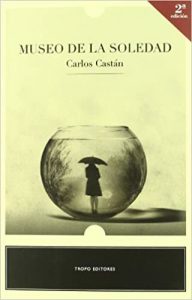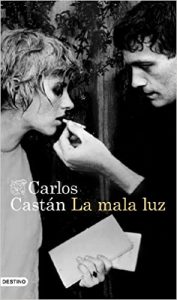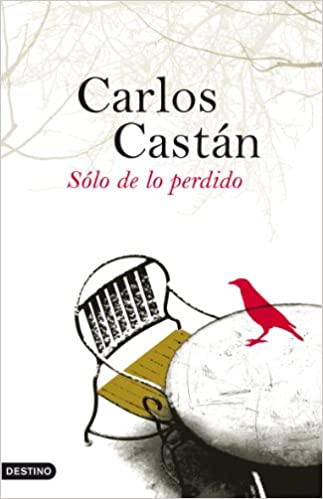There was a time when I was constantly consuming short story books to unblock myself while "preparing" for exams in which I ended up reading countless novels and writing a sketch for my own debut.
From those days I remember among many others Oscar Sipan, Manuel Rivas, Italo Calvino, Patricia esteban and of course, don Carlos Castan, of whom I remember having his books massacred based on notes, selecting brilliant phrases or concepts. Later I contacted him by email in case he wanted to accompany me in the presentation of one of my novels, but the meeting could not take place.
I recently remembered Carlos Castán because I heard something about a special edition that was going to compile some of his best stories (that is, they should be all of them) and I remembered that he had never brought him to my blog.
Top 3 recommended books by Carlos Castán
Loneliness museum
This is in particular the book that I still keep with his notes as a passionate young man who spent his hours as an opponent reading with relish, but not precisely the Constitution or the Penal Code. And it will surely be one of the main sources from which to retrieve stories for the new that is reissued.
Because between the pages of this compendium of stories you really moved contemplating existence like that museum of loneliness, exhibited only when life meets silence again, when being submits to the eternal unattainable questions. Only in the case of Castán, the philosophy that exudes this feeling is a melancholic walk through the waxed floor of the museum, between the noise of your steps and the feeling of the works on display that manage to make your skin crawl due to the mutation in each and every one. of the characters who observe you from their own canvases of life.
What could we find inside an impossible museum called the Museum of Solitude? For example, stories; these twelve stories that tell us about silence, love and the power of dreams. Lonely characters who watch life go by from a window and wait for the rain to bring them an answer or hope; men and women who doubt, who do not know whether to live reality or dream and invent another in which to recognize themselves; people who wander the streets of a city while remembering the past that returns like a train in a tunnel; those who are drawn by their own imagination to go through half-open doors and unravel amazing mysteries that will explain their own existence.
Bad light
Every leap from the renowned short story writer to the novelist has that I don't know what of the risk of someone who boards unknown ships. Both for the author himself and for the regular reader. Because you don't want the novel to change everything. The new rules set the writer on a much longer journey.
The question is to know how to adapt that own ingenuity that briefly extends ingenious metaphors that are recreated in the form at the same time that they brighten the background to a new format that also requires action. Carlos Castán achieved a good balance in this novel while maintaining his love for deep existentialist essences. Jacobo and the narrator are old friends who have just moved to Zaragoza, both fleeing a failed marriage, unable to bear the weight of their own lives. As they get used to their new situation, they share beers, books, and ever-longer evenings in a desperate attempt to elude the world.
One day, Jacobo begins to be afraid, an inordinate and apparently irrational fear of staying home alone, which he manages to control with the company of his friend, until one night Jacobo appears stabbed in his own house. The protagonist then takes over his life, perhaps as the last chance to flee from his own, and thus meets a woman, Nadia, who will become his obsession and with whom to undertake the frantic investigation of the murder of his friend, which will definitely upset their own existence.
Only of the lost
It is as if a continuation of the sentence is missing. Only from what was lost what? The answers arrive immediately in the form of a summer storm, splashing us with stories that wet the outside and soak the inside, with that cold feeling of living so typical of this author.
Carlos Castán's stories are far from perfect, with a precise technique and a very tight mechanism, those stories that tend to end up dissected and lifeless in writing schools. Castán's stories bleed, they are full of shreds. Castán writes of misplaced characters, without maps or compass. Guys who suddenly escape in search of what they could have been had they been others; that die long before they die. He writes of the face and the cross of loneliness, of empty afternoons, roads, plans and dreams, and of the end of the trip and the longing for peace.
He writes of people who miss trains and also of those who resist, despite their fatigue, repeated days. He writes about the thirst for intensity, how freedom fills the conscience with spiders, and how to keep fear at bay. Castán writes with truth, as if recording the echo of our footsteps around the world and succeeds, for better and for worse, that his pages end up giving back to those who read them an essential image that we recognize as our own.




3 comments on “The 3 best books by Carlos Castán”